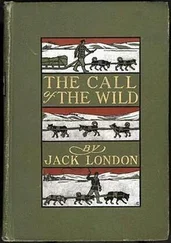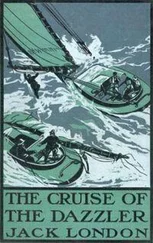Jack London - The Road
Здесь есть возможность читать онлайн «Jack London - The Road» весь текст электронной книги совершенно бесплатно (целиком полную версию без сокращений). В некоторых случаях можно слушать аудио, скачать через торрент в формате fb2 и присутствует краткое содержание. Год выпуска: 1907, Жанр: Классическая проза, на английском языке. Описание произведения, (предисловие) а так же отзывы посетителей доступны на портале библиотеки ЛибКат.
- Название:The Road
- Автор:
- Жанр:
- Год:1907
- ISBN:нет данных
- Рейтинг книги:5 / 5. Голосов: 1
-
Избранное:Добавить в избранное
- Отзывы:
-
Ваша оценка:
- 100
- 1
- 2
- 3
- 4
- 5
The Road: краткое содержание, описание и аннотация
Предлагаем к чтению аннотацию, описание, краткое содержание или предисловие (зависит от того, что написал сам автор книги «The Road»). Если вы не нашли необходимую информацию о книге — напишите в комментариях, мы постараемся отыскать её.
The Road — читать онлайн бесплатно полную книгу (весь текст) целиком
Ниже представлен текст книги, разбитый по страницам. Система сохранения места последней прочитанной страницы, позволяет с удобством читать онлайн бесплатно книгу «The Road», без необходимости каждый раз заново искать на чём Вы остановились. Поставьте закладку, и сможете в любой момент перейти на страницу, на которой закончили чтение.
Интервал:
Закладка:
I was delayed between the passes, went two days without food, and walked eleven miles on the third day before I got any, and yet I succeeded in passing Skysail Jack along the Fraser River in British Columbia. I was riding "passengers" then and making time; but he must have been riding passengers, too, and with more luck or skill than I, for he got into Mission ahead of me.
Now Mission was a junction, forty miles east of Vancouver. From the junction one could proceed south through Washington and Oregon over the Northern Pacific. I wondered which way Skysail Jack would go, for I thought I was ahead of him. As for myself I was still bound west to Vancouver. I proceeded to the water-tank to leave that information, and there, freshly carved, with that day's date upon it, was Skysail Jack's monica. I hurried on into Vancouver. But he was gone. He had taken ship immediately and was still flying west on his world-adventure. Truly, Skysail Jack, you were a tramp-royal, and your mate was the "wind that tramps the world." I take off my hat to you. You were "blowed-in-the-glass" all right. A week later I, too, got my ship, and on board the steamship Umatilla, in the forecastle, was working my way down the coast to San Francisco. Skysail Jack and Sailor Jack-gee! if we'd ever got together.
Water-tanks are tramp directories. Not all in idle wantonness do tramps carve their monicas, dates, and courses. Often and often have I met hoboes earnestly inquiring if I had seen anywhere such and such a "stiff" or his monica. And more than once I have been able to give the monica of recent date, the water-tank, and the direction in which he was then bound. And promptly the hobo to whom I gave the information lit out after his pal. I have met hoboes who, in trying to catch a pal, had pursued clear across the continent and back again, and were still going.
"Monicas" are the nom-de-rails that hoboes assume or accept when thrust upon them by their fellows. Leary Joe, for instance, was timid, and was so named by his fellows. No self-respecting hobo would select Stew Bum for himself. Very few tramps care to remember their pasts during which they ignobly worked, so monicas based upon trades are very rare, though I remember having met the following: Moulder Blackey, Painter Red, Chi Plumber, Boiler-Maker, Sailor Boy, and Printer Bo. "Chi" (pronounced shy), by the way, is the argot for " Chicago."
A favorite device of hoboes is to base their monicas on the localities from which they hail, as: New York Tommy, Pacific Slim, Buffalo Smithy, Canton Tim, Pittsburg Jack, Syracuse Shine, Troy Mickey, K.L. Bill, and Connecticut Jimmy. Then there was "Slim Jim from Vinegar Hill, who never worked and never will." A "shine" is always a negro, so called, possibly, from the high lights on his countenance. Texas Shine or Toledo Shine convey both race and nativity.
Among those that incorporated their race, I recollect the following: Frisco Sheeny, New York Irish, Michigan French, English Jack, Cockney Kid, and Milwaukee Dutch. Others seem to take their monicas in part from the color-schemes stamped upon them at birth, such as: Chi Whitey, New Jersey Red, Boston Blackey, Seattle Browney, and Yellow Dick and Yellow Belly-the last a Creole from Mississippi, who, I suspect, had his monica thrust upon him.
Texas Royal, Happy Joe, Bust Connors, Burley Bo, Tornado Blackey, and Touch McCall used more imagination in rechristening themselves. Others, with less fancy, carry the names of their physical peculiarities, such as: Vancouver Slim, Detroit Shorty, Ohio Fatty, Long Jack, Big Jim, Little Joe, New York Blink, Chi Nosey, and Broken-backed Ben.
By themselves come the road-kids, sporting an infinite variety of monicas. For example, the following, whom here and there I have encountered: Buck Kid, Blind Kid, Midget Kid, Holy Kid, Bat Kid, Swift Kid, Cookey Kid, Monkey Kid, Iowa Kid, Corduroy Kid, Orator Kid (who could tell how it happened), and Lippy Kid (who was insolent, depend upon it).
On the water-tank at San Marcial, New Mexico, a dozen years ago, was the following hobo bill of fare:-
(1) Main-drag fair.
(2) Bulls not hostile.
(3) Round-house good for kipping.
(4) North-bound trains no good.
(5) Privates no good.
(6) Restaurants good for cooks only.
(7) Railroad House good for night-work only.
Number one conveys the information that begging for money on the main street is fair; number two, that the police will not bother hoboes; number three, that one can sleep in the round-house. Number four, however, is ambiguous. The north-bound trains may be no good to beat, and they may be no good to beg. Number five means that the residences are not good to beggars, and number six means that only hoboes that have been cooks can get grub from the restaurants. Number seven bothers me. I cannot make out whether the Railroad House is a good place for any hobo to beg at night, or whether it is good only for hobo-cooks to beg at night, or whether any hobo, cook or non-cook, can lend a hand at night, helping the cooks of the Railroad House with their dirty work and getting something to eat in payment.
But to return to the hoboes that pass in the night. I remember one I met in California. He was a Swede, but he had lived so long in the United States that one couldn't guess his nationality. He had to tell it on himself. In fact, he had come to the United States when no more than a baby. I ran into him first at the mountain town of Truckee. "Which way, Bo?" was our greeting, and "Bound east" was the answer each of us gave. Quite a bunch of "stiffs" tried to ride out the overland that night, and I lost the Swede in the shuffle. Also, I lost the overland.
I arrived in Reno, Nevada, in a box-car that was promptly side-tracked. It was a Sunday morning, and after I threw my feet for breakfast, I wandered over to the Piute camp to watch the Indians gambling. And there stood the Swede, hugely interested. Of course we got together. He was the only acquaintance I had in that region, and I was his only acquaintance. We rushed together like a couple of dissatisfied hermits, and together we spent the day, threw our feet for dinner, and late in the afternoon tried to "nail" the same freight. But he was ditched, and I rode her out alone, to be ditched myself in the desert twenty miles beyond.
Of all desolate places, the one at which I was ditched was the limit. It was called a flag-station, and it consisted of a shanty dumped inconsequentially into the sand and sagebrush. A chill wind was blowing, night was coming on, and the solitary telegraph operator who lived in the shanty was afraid of me. I knew that neither grub nor bed could I get out of him. It was because of his manifest fear of me that I did not believe him when he told me that east-bound trains never stopped there. Besides, hadn't I been thrown off of an east-bound train right at that very spot not five minutes before? He assured me that it had stopped under orders, and that a year might go by before another was stopped under orders. He advised me that it was only a dozen or fifteen miles on to Wadsworth and that I'd better hike. I elected to wait, however, and I had the pleasure of seeing two west-bound freights go by without stopping, and one east-bound freight. I wondered if the Swede was on the latter. It was up to me to hit the ties to Wadsworth, and hit them I did, much to the telegraph operator's relief, for I neglected to burn his shanty and murder him. Telegraph operators have much to be thankful for. At the end of half a dozen miles, I had to get off the ties and let the east-bound overland go by. She was going fast, but I caught sight of a dim form on the first "blind" that looked like the Swede.
That was the last I saw of him for weary days. I hit the high places across those hundreds of miles of Nevada desert, riding the overlands at night, for speed, and in the day-time riding in box-cars and getting my sleep. It was early in the year, and it was cold in those upland pastures. Snow lay here and there on the level, all the mountains were shrouded in white, and at night the most miserable wind imaginable blew off from them. It was not a land in which to linger. And remember, gentle reader, the hobo goes through such a land, without shelter, without money, begging his way and sleeping at night without blankets. This last is something that can be realized only by experience.
Читать дальшеИнтервал:
Закладка:
Похожие книги на «The Road»
Представляем Вашему вниманию похожие книги на «The Road» списком для выбора. Мы отобрали схожую по названию и смыслу литературу в надежде предоставить читателям больше вариантов отыскать новые, интересные, ещё непрочитанные произведения.
Обсуждение, отзывы о книге «The Road» и просто собственные мнения читателей. Оставьте ваши комментарии, напишите, что Вы думаете о произведении, его смысле или главных героях. Укажите что конкретно понравилось, а что нет, и почему Вы так считаете.





